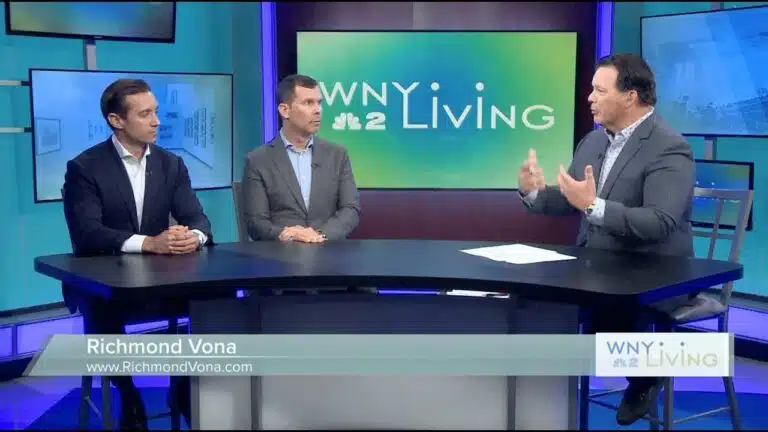In most circumstances, personal injury settlements are not taxable. This will allow you to keep as much of your award as possible, helping you preserve your family’s financial future and move forward from your accident.
However, there are some exceptions to this rule. If you’re uncertain whether you’ll have to pay tax on a personal injury settlement, reach out to Richmond Vona online today for a free consultation.
ON THIS PAGE
Will I Need To Pay Taxes on My Personal Injury Settlement?
Under IRS Section 104, income from damages relating to physical injuries or illness is exempt from taxation. That means that personal injury claims are generally not taxable.
Will I Need To Pay Taxes on My Personal Injury Settlement?
New York does not charge any state tax on damages from physical injuries, meaning personal injury settlements are generally not taxable on both the federal and state levels here. However, New York does tax any punitive damages you receive.
What Parts of a Settlement Might Be Taxable?
While the bulk of your personal injury settlement is tax-free, certain aspects of your award may be taxable. Examples of taxable income from personal injury settlements can include:
- Emotional distress: Emotional distress damages are not taxable if they stem directly from a physical injury or physical sickness. However, if the emotional distress arises from non-physical causes—such as workplace harassment, wrongful termination, or discrimination—it may be considered taxable income.
- Punitive damages: While rare, punitive damages may be available in some cases involving severe negligence or intentional harm. These damages can be lucrative but are also taxable at both the federal and state levels.
- Interest: Your settlement may accrue interest before it is finalized. The interest amount will be taxable, even if the rest of your award is not.
Are Lost Wages in a Personal Injury Case Taxed?
Lost wages can be considered taxable in employment lawsuits, as they do not involve physical injuries. However, compensation for lost wages awarded as part of a personal injury settlement for physical injuries are generally not taxed, as long as they are not separately categorized as taxable income. However, if your settlement explicitly allocates a portion for lost wages, the IRS may treat that portion as taxable.
Will I Receive a 1099 for My Settlement?
If your entire lawsuit settlement is non-taxable, you won’t receive a 1099 form for it. However, you may be issued a 1099 for any taxable portions of your award, such as punitive damages or interest.
How Do Taxes Work on Structured Settlements?
Structured settlements spread out your personal injury payments over time. These payments may include interest to compensate for any value your settlement loses over its lifetime. Those interest payments will be taxable, but the bulk of your settlement will remain tax-exempt regardless of its payment structure.
Should I Speak With a Tax Professional?
Consulting with a professional can be incredibly helpful when considering the tax implications of your personal injury settlement, especially if it has a high value, mixed types of damages or claims, or a payment structure. Speaking with both a lawyer and an accountant can give you peace of mind when heading into tax season.
Need Help Understanding Your Injury Settlement?
The experienced legal team at Richmond Vona has more than two decades of combined experience in personal injury law. We’ve secured over $200 million for our clients, so we know a thing or two about settlements. If you have questions about taxes on personal injury settlements, contact us online or call 716-500-5678 today for a free consultation or to have us review the terms of your agreement.



